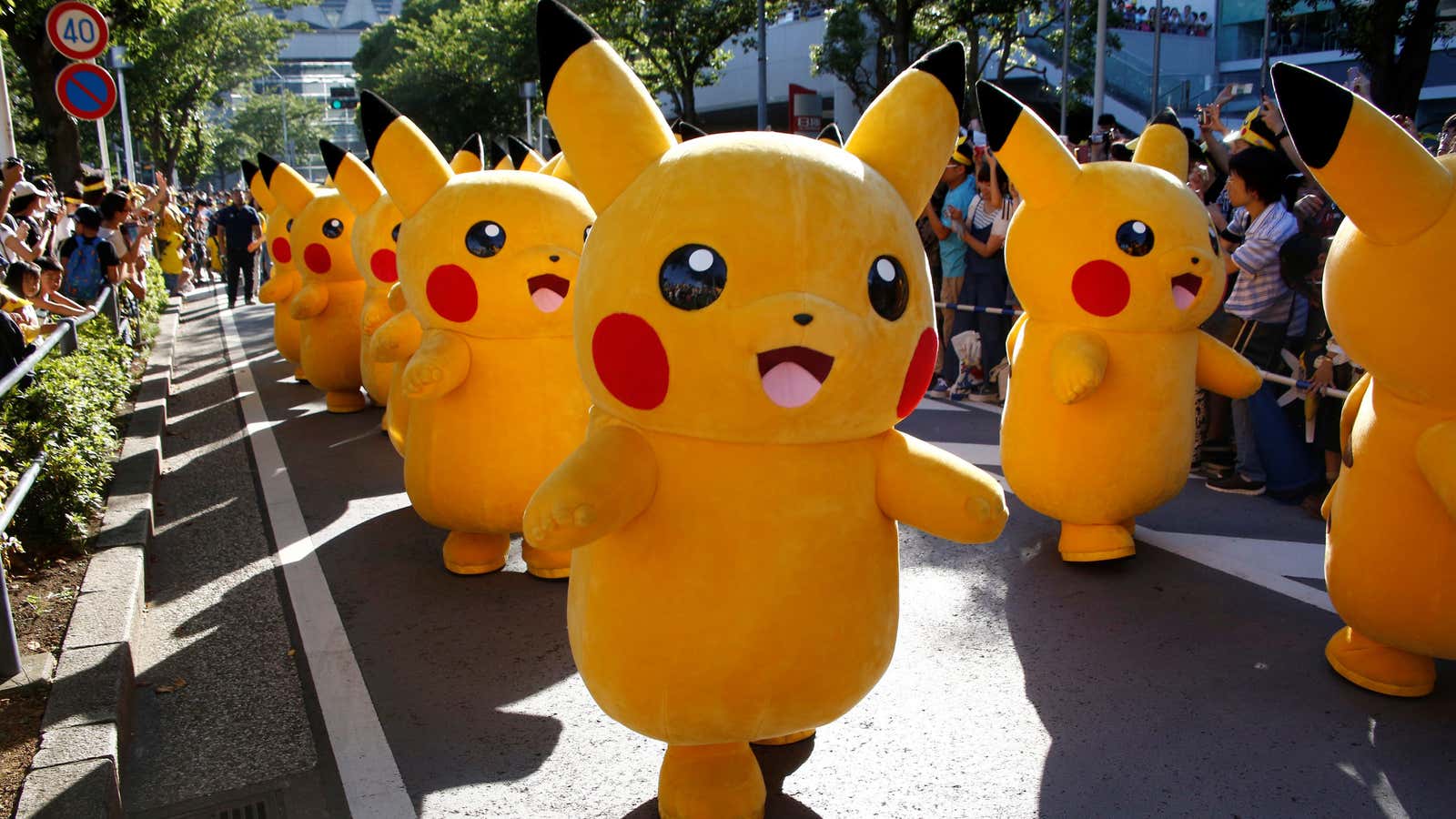Nintendo reported its second-quarter earnings (pdf) for 2016 today, and it broke out its profits from Pokémon Go for the first time. The company made ¥12 billion ($115 million) from licensing fees through from the game, which flow through affiliated firms including the Pokémon Company.
The profit Nintendo would see from Pokémon Go was a bit of a mystery until today. At one point, investors were snapping up so much Nintendo stock in the hopes of profiting from Pokémon Go that the company issued a warning to temper their exuberance.
Pokémon Go has made an estimated $600 million in revenue for its developer, Niantic Labs, in the three months since it launched, according to App Annie. Reconciling that with Nintendo’s earnings indicates that Nintendo gets a 19% cut of the game’s total revenues.
What’s more, Pokémon Go had a halo effect, Nintendo said, driving the firm’s hardware sales up by 19% compared to a year earlier, even though the game doesn’t require the company’s handheld consoles because it’s played on Android and iOS smartphones. This added ¥40.7 billion in revenue for the quarter.
But the effects of the runaway hit were tempered by other uncontrollable factors. The Japanese yen has gained 14% against the US dollar this year, dampening the game’s success on Nintendo’s yen-denominated accounts. It reported a ¥4.9 billion forex loss for the quarter (pdf), taking its currency losses for the year to ¥39.9 billion. This resulted in an operating loss of ¥812 million for the quarter.
Pokémon Go is a bright spot amid a long decline in revenue and earnings for the Japanese games pioneer. It will look to its Switch hand-held console, due in March 2017, to restart growth. The device is a hybrid that appears to function like something between a home console and a hand-held. It’s the firm’s latest attempt to negotiate a world reshaped around smartphones and the apps that run on them—games like Pokémon Go.
